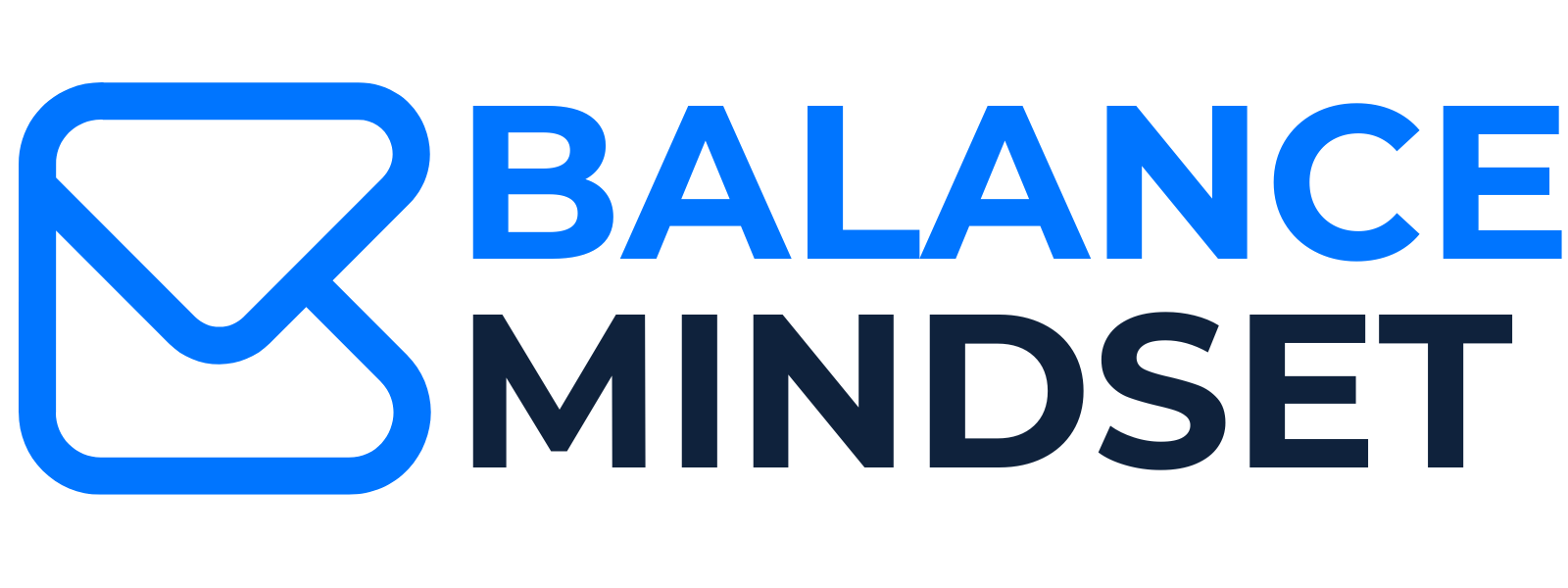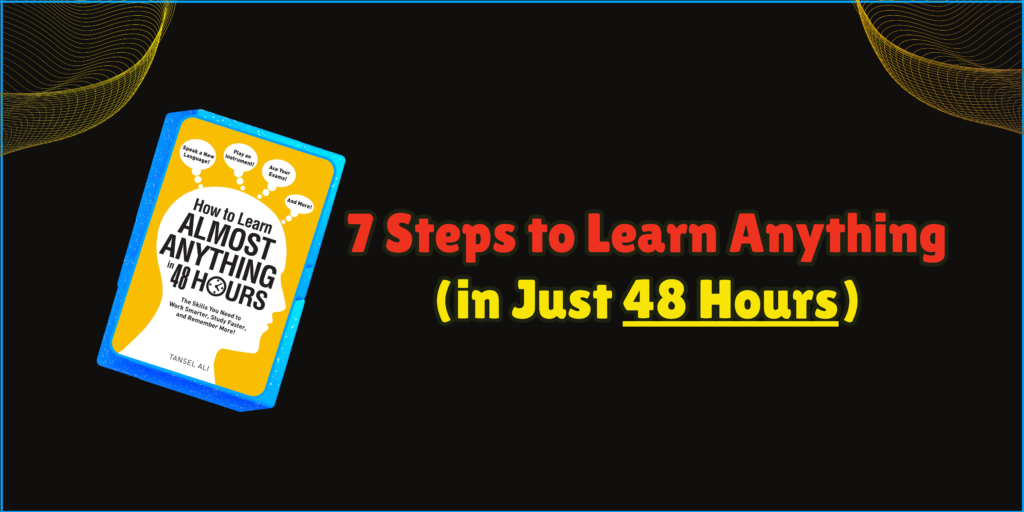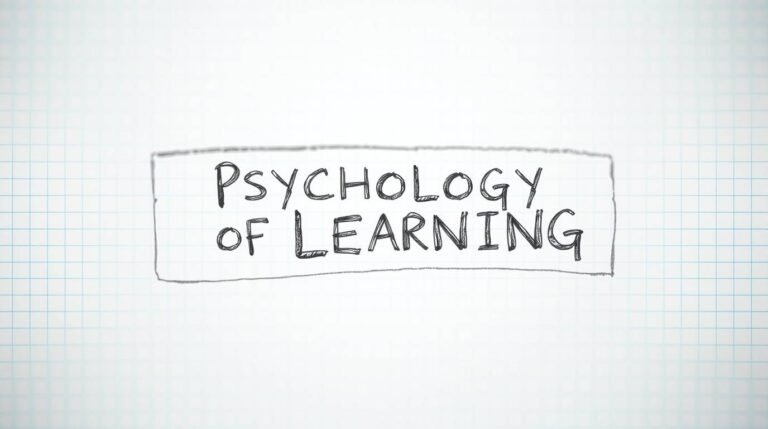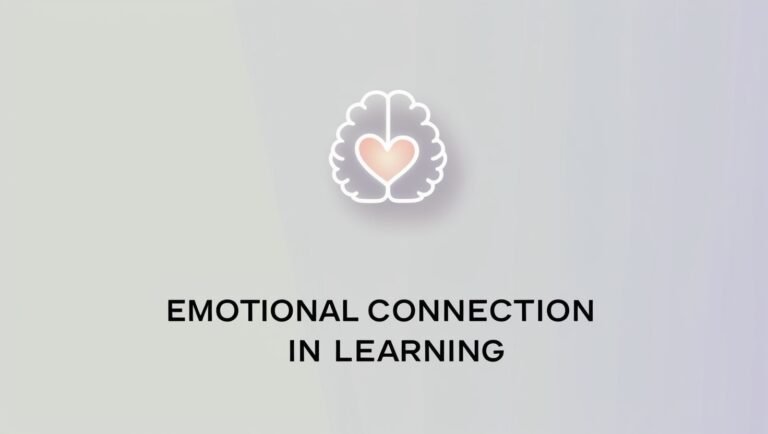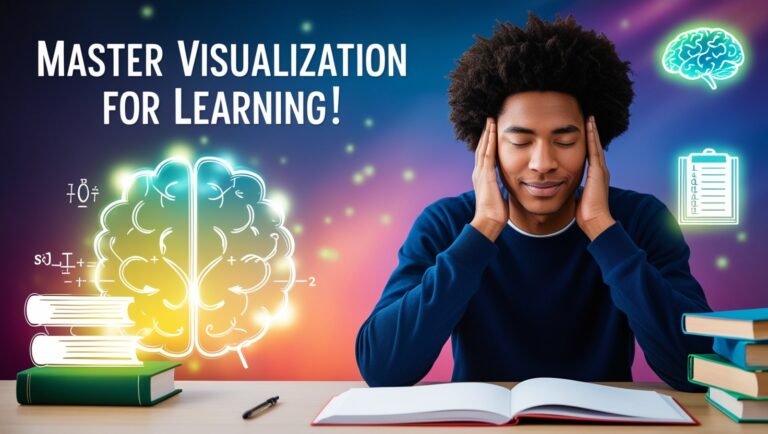In this article, I’m going to share with you 7 steps to learn anything in just 48 hours without making any mistakes. This idea comes from Tansel Ali, author of “How to Learn Almost Anything in 48 Hours”. But I am customizing this method for you and myself. So, by customizing this method, you can learn any skill, whether it’s a language, programming, science, etc., in just 48 hours. So let’s start.
Before diving into the main part of our article, you can keep yourself only 3 minutes to be in a positive mindset and take some deep breaths to focus on your valuable tasks.
But remember, there are so many ways to learn any skill. All of the methods are not invaluable, some are more effective and efficient, and some methods are not very efficient. But works for anyone. So, believe in your learning style and follow various methods. Sometimes you find sustainable methods for yourself which you can follow long-lasting. Also remember this: “Steady and consistency is the key to success”.
Table of Contents
1. Gather Materials and Resources to Learn (Up to 3 Hours)
In this section, you need only 3 hours to gather all the resources to get started with what you have already chosen. Resources can be books, websites, crash courses, etc., as your personal choice.
2. Develop memorization strategy (Up to 2 hours)
Once you have gathered all the resources, now you need to make a decision on memorizing techniques that you will follow during your whole journey only for this skill. If you’re looking to quickly acquire knowledge, consider developing a Mind Map of the content and using visualization techniques like SMASHIN SCOPE to create engaging associations in your mind. Or if you want to learn lengthy lists such as the presidents of the United States, you should consider using The Method of Loci.
3. Organize / Prioritize materials (Up to 1 hour)
Once you’ve developed your strategy, the next step is to organize your materials and resources to align with that strategy. For example, if your strategy is to memorize all 1500 French phrases, you’ll need to ensure that these phrases are organized in a way that allows you to go through them efficiently. One effective method is to enter or copy and paste each phrase into a spreadsheet, making them easy to access and review one by one. It’s just an example, not an instruction to follow this exactly. You can always customize it to your personal preference.
4. Create Accountability (Up to 1 hour)
It is important to share your learning task with a family member, friend, or anyone else who can hold you accountable for your actions. Accountability to others creates motivation, helping you stay committed and avoid letting others down. We often tend to slack off if we are only accountable to ourselves. It also helps you to be in the tracking zone. You can also make a paper list to progress your learning (can be a digital tool). But ensure your accountability partner.
5. Memorise (Up to 30 hours)
Once you have all your materials and have developed your learning process, it’s time for action. Start with short periods of memorization rather than long ones. This approach is less strain on the brain, allows you to complete a set memorization period quickly, and as you improve, you can gradually increase your time. Starting with longer memorization periods can quickly overwhelm you. Keep it short and simple.
6. Review (spaced repetition) (Up to 1-hour)
Once you have memorized the material, it’s essential to go back and review your work. This process helps solidify your memorization into long-term memory. Depending on the subject matter, the rule for spaced repetition is to review an hour later, then a day later, a week later, a month later, three months later, six months later, and finally, a year later
7. Practice and Apply (Up to 10 hours)
Once you have memorized and utilized techniques to achieve your goal, you’ll need to practice to give yourself feedback on how your memorization went. This practice serves as a test of how much you have truly learned. For instance, if you’ve memorized 1500 French phrases, immerse yourself in an environment where French is spoken and engage in conversations. Can you effectively communicate? What aspects work well? What doesn’t? Take note of these observations and analyze why they occurred.
Remember this forever – Knowledge is power when it is applied effectively. Learn from your experiences, and then revisit and reinforce your memorization. Practicing what you’ve memorized is essential for the learning process. Memorization alone stores information, while learning involves understanding. Practice is where these two aspects intersect. So, aim to practice as much as possible, and before you know it, you’ll be mastering anything you set out to learn in record time.
In conclusion, have the courage to read that book. I recommend that you read it. All of the credit goes to Tansel Ali, author of “How to Learn Almost Anything in 48 Hours”. And I have a request for you: try this method from today by dedicating 1 month of your life with daily 2 hours. Then see what happens. Best of luck for your learning.
About Myself:
I am Habibur Rahman Meheraj. I am currently in the second year of Intermediate and trying to gather learning methods and apply knowledge in context. I am very passionate about maintaining a “Life Balance”.
